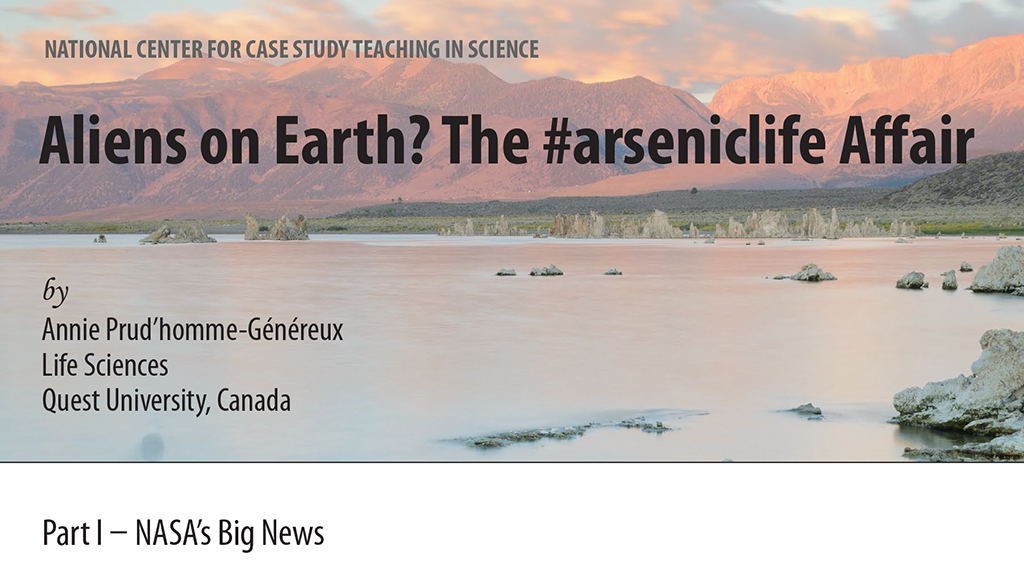Abstract
The discovery of a bacterium capable of substituting arsenic for phosphorus in its DNA was announced with much fanfare in 2010. It was immediately and very publicly critiqued by researchers posting their analyses of the paper on their blogs. The authors of the original finding refused to respond to the critiques in a public forum, arguing that peer review is the proper channel for such debates. This interrupted case investigates the evidence for and against "arsenic life" and uses Twitter and blog posts from the controversy to question the proper forum for critiquing science. The case was written for first-year biology students in an introductory biology course and has also been used in a third-year astrobiology course. It is used following a discussion of "What is life?" and as an introduction to the major biomolecules (DNA, RNA, amino acids, proteins, phospholipids, and ATP). Students should have some familiarity with biomolecules and a basic (high school level) understanding of chemistry.



